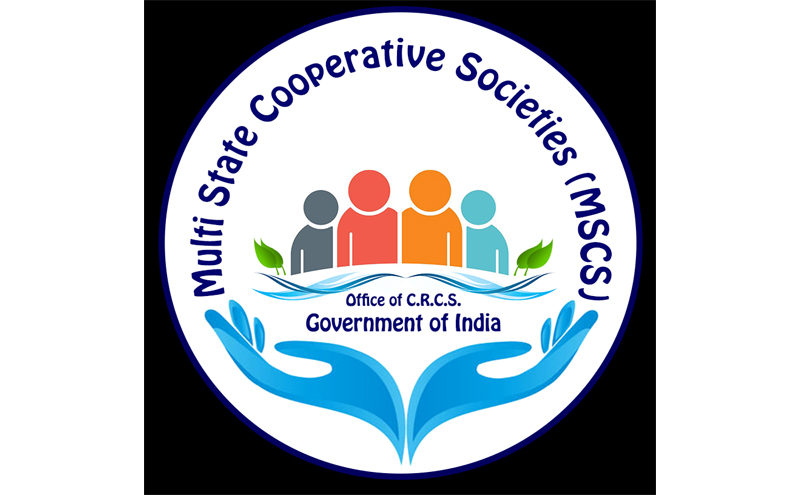NEW DELHI, Oct 12: The Union Cabinet on Wednesday approved amendments to the Multi-State Cooperative Societies Act to bring transparency and accountability in the sector as well as reform the electoral process.
The Union Cabinet has approved the Multi-State Cooperative Societies (Amendment) Bill, 2022, which seeks to amend the Multi-State Cooperative Societies Act, 2002, I&B Minister Anurag Thakur told reporters here after the Cabinet meeting.
The Bill will incorporate the provisions of the 97th Constitutional Amendment.
Thakur said the amendments seek to improve the ease of doing business, bring greater transparency and enhance governance in these societies.
Explaining the reasons behind the amendment Bill, he said there have been cases of mismanagement like financial fraud, delay in holding elections and the same person continuing to occupy for a long period of time.
Multi-state co-operatives subject comes in the Union list, he said, but added that the amendments are being proposed after the consultation with all states.
The Government plans to bring the amendment Bill in the upcoming winter session of Parliament, Thakur said.
At present, India has more than 1,500 multi-state co-operative societies spread across the country promoting economic and social betterment of their members based on the principles of self-help and mutual aid.
Giving major highlights of the amendment Bill, Thakur said the Government has included provisions relating to representation of women and Scheduled Caste/Scheduled Tribe members on the board of multi-state cooperative societies.
The amendments have been brought to reform the electoral process, strengthen monitoring mechanisms and enhance accountability.
To improve the governance of multi-state cooperative societies, the Bill has specific provisions for setting up of Cooperative Election Authority, Cooperative Information Officer and Cooperative Ombudsman.
“Election authority will be set up for conducting independent and fair election. Only those will be eligible to contest who have attended at least three general meetings of the societies. They must also be availing products and services of these societies,” Thakur said.
The election authority will ensure that elections are held in a fair, free and timely manner, which in turn will help reduce incidents of complaints and malpractices. There is a provision to debar offenders for three years to bring in more electoral discipline.
The ombudsman will provide a mechanism for the redressal of member grievances in a structured fashion, while the cooperative information officer will enhance transparency by providing members with timely access to information.
On board composition, he said two seats will be reserved for women and one for SC/STs. For the board meeting, the presence of one-third members will be required.
To improve governance, Thakur said the auditing process will be strengthened.
The societies having deposit/turnover of Rs 500 crore will be audited only by the auditors empanelled with the Central Government, the Minister said.
As per the proposal, Thakur said there is a provision for winding up these societies in case of misrepresentation and fraud. The Centre can supersede the board if there are cases of cheating, financial fraud and elections being not held, he added.
These societies also cannot sell the Centre’s shareholding without permission from the Government, the Minister said.
The societies operating in the banking sector will be governed by the Banking Regulation Act, Thakur said, adding that this would safeguard depositors’ money.
Official sources said the Bill will also enable the multi-state cooperative societies to raise funds. There will be a provision for issuing non-voting shares in multi-state co-operative societies to help them raise funds.
Seeking to promote professional management, the Bill has provisions for bringing in co-opted directors with experience in the field of banking, management, cooperative management and finance. The directors having specialisation in any field relating to the objects and activities undertaken by such multi-State co-operative society can be represented on the board.
For ease of doing business, the amendment Bill proposes to reduce the period of registration, with a provision for the applicants to seek additional time of two months for rectification of mistakes. It also provides for electronic submission and issuance of documents, thus providing for a comprehensive digital ecosystem.
Further, the newly proposed Rehabilitation, Reconstruction & Development Fund will help in revitalising sick cooperative societies. Those societies who have earned a profit for the last three years will contribute 1 per cent of their net profit of Rs 1 crore whichever is less in this fund.
Moreover, the provision for stipulating prudential norms will bring in financial discipline. The amendments relating to the auditing mechanism will ensure more accountability.
The amendment Bill is aimed at strengthening the cooperative movement in the country.
The amendment follows extensive consultations with stakeholders and it was decided to amend the existing Act to bring it in line with Part IXB of the Constitution.
The Multi-State Co-operative Societies Act, of 2002 was enacted with a view to facilitating the democratic functioning and autonomous working of multi-state co-operative societies in line with the established co-operative principles. (PTI)


